The theme of this year’s ECOSOC Youth Forum, held amidst unprecedented global emergency with the COVID-19 pandemic, was ‘A Decade of Action: Building a Resilient Recovery’. The forum focused primarily on COVID-19 and its impact on the implementation of the Decade of Action for Sustainable Development as well as the recovery mechanisms required to put us back on track to build a better world, as envisioned in the 2030 Agenda for Sustainable Development.
On 6th April 2021, more than 70 people from 30 countries attended the Commission’s side event at the 10th annual ECOSOC Youth Forum, co-organised with the World Health Organization (WHO), titled ‘The future of health governance: An online youth dialogue’. The aim of the event was to facilitate an open dialogue for youth to discuss and share perspectives regarding the future of health governance in the context of digital transformations in health.

When asked “what do you want for the future of health governance?”, participants emphasised the importance of inclusion and equity in governance processes.
The event opened with remarks from GHFutures2030 Co-Chair, Prof Ilona Kickbusch, who launched the GHFutures2030 Youth Network, which invites individuals and organisations to commit to co-creating and co-leading research and advocacy for health futures. The form for expressions of interest can be found here.
Diah Saminarsih, Senior Advisor on Youth and Gender to the Director-General of the WHO, and Eva Kiegele, Technical Officer of the WHO Office at the UN, followed with keynotes. Saminarsih stressed the importance of noting how youth are pushing for innovation in digital health and spoke about what WHO is doing to address youth leadership in governance in establishing the WHO Youth Council. Kiegele further emphasised how youth involvement is central to the WHO’s work and spoke to the importance of supporting youth through learning opportunities, introducing the forthcoming launch of the WHO Academy.
The subsequent panel discussion was moderated by GHFutures2030 Youth Officer, Brian Li Han Wong, and featured five young experts:
- Dr Dexter Galban – International Youth Power Global Leader & Panel Member, Restless Development; CEO & Founder, Alaga Health Inc. & Experto PlayLabs Inc.
- Dr Enow Awah Georges Stevens – Youth Consultant, GHFutures2030
- Danielle Mullings – Young Expert, Young Experts: Tech 4 Health (YET4H)
- Ines Siepmann – Young Professionals Coordinator, The Association of Schools of Public Health in the European Region (ASPHER)
- Robert Dean Smith – Research Assistant, GHFutures2030
Introducing the main session, Wong spoke about the Commission’s various work streams involving youth, including its two-part Youth Consultation, hosted at Wilton Park, which resulted in the co-creation of a Youth Statement and Call For Action, which will be released alongside the Commission Report.
When asked “As youth, what barriers/concerns are there in achieving the future of health governance that you want?”, participants remarked that corruption, lack of awareness, and limited resources were major barriers.

The panel discussion centered around three main themes, which were proposed by the Co-Chairs of the Commission: (1) the equity and participation gap, (2) the choices we have, and (3) the future we want.





Finally, Galban stressed the importance of a collaborative, interoperable approach to governance with youth to positively shape health futures for youth.
How we engage with young people in the digital transformation and bridge the digital divide matters. Panellists and attendees voiced that active youth participation, inclusion, and acknowledgment of the heterogeneity of youth are key to positively shaping futures of health governance. The GHFutures2030 Youth Team looks forward to future work involving young people, including research, online dialogues, and calls for contributions, to address opportunities, challenges, and solutions to digital transformations in health.


